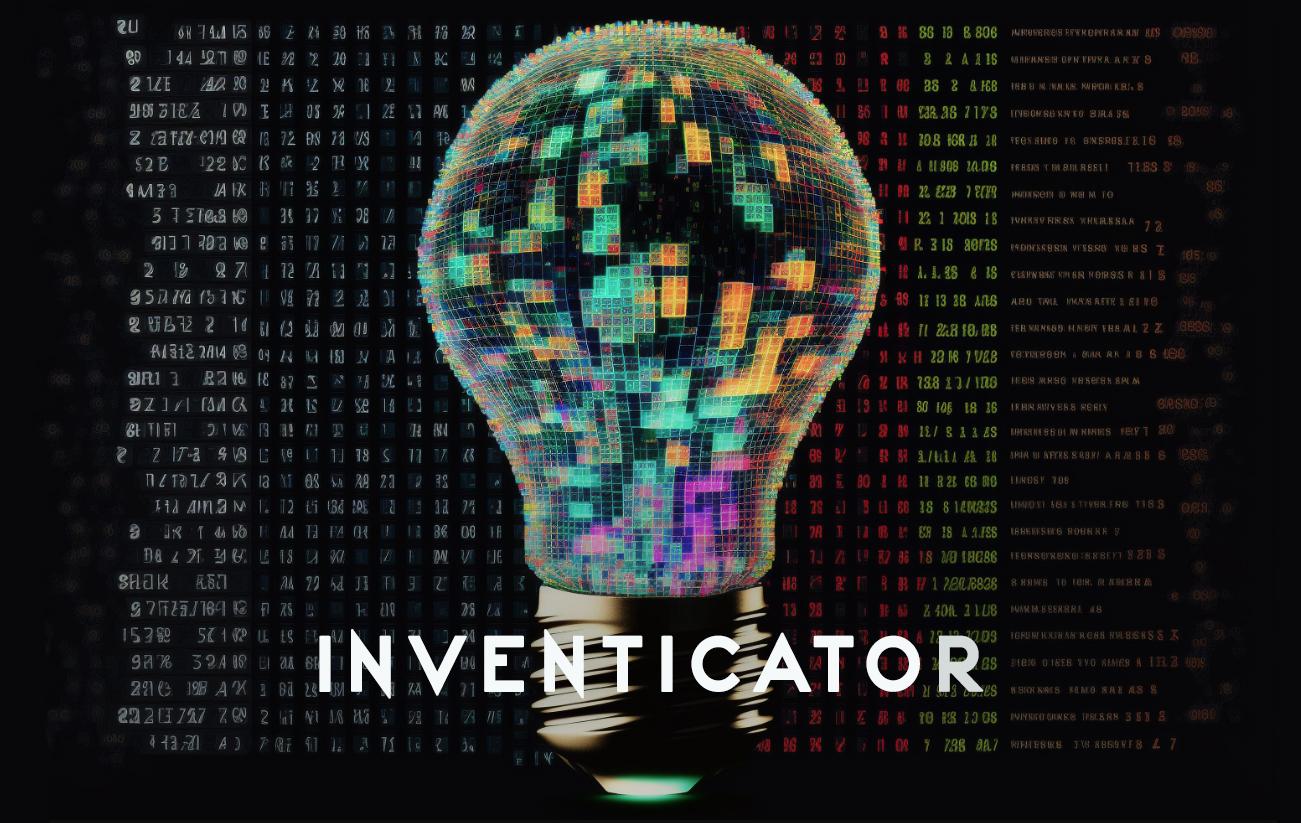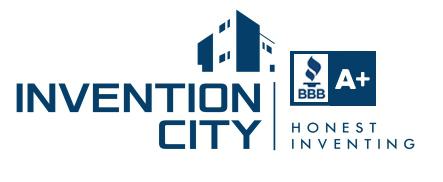Inventicator™ Invention Evaluation
Estimate the likelihood of your invention’s commercial success without disclosing proprietary and confidential information.

Use results for non-confidential initial presentations to potential licensees and investors.
The Inventicator™ helps to solve two big problems for people who develop and commercialize new products:
1. Determine at the earliest possible stage whether or not a new product is likely to be successful.
2. Discuss invention ideas without entering into confidentiality agreements.
The Inventicator™ scores inventions in different areas and helps inventors determine whether and where investment in further development makes sense. The Inventicator™ also provides a way to begin a discussions about an invention prior to filing for patent protection and without the hassle of entering into a confidentiality agreement.
- NOTE 1: Because they are so close to their invention, most inventors make overly optimistic assessments when answering the questions. This can result in unrealistically high scores.
- NOTE 2: The Inventicator weighs the answers to some questions differently than others. The final score is calculated by an algorithm behind the scenes.
Is a new invention more appealing to targeted users than current alternatives? Can it be made and sold profitably? Does a search of prior art confirm that a critical structure is different? Answers to questions like these make it possible to forecast the odds of an invention's likely success and confidential information is not required.
The mechanics of using the Inventicator™ are easy. In each of eight categories you are asked a series of questions and click on drop down menus and check-boxes to choose answers. Default answers are provided for each question and if you don’t know the answer you can use the default choice. Your answers are weighted and totaled to produce a number called the Invention Commercialization Quotient or ICQ™. Scores can range from zero to above 200. A score above 100 is special and indicates that a new product idea probably has the right stuff for commercial success. Scores below 35 indicate a product will likely have difficulties.
The Inventicator™ is an estimating (or guesstimating) tool that provides a useful indication of how your invention compares to others and in turn, how likely it is to succeed. The more accurate your information, the more honest you are in your answers, the better it will work - but even with rough guesses you should find the results helpful.
Beyond offering insight to inventors, the Inventicator™ and ICQ™ score provide ways of maintaining confidential information while sharing meaningful details that might interest prospective licensees, partners and investors enough to enter into a second stage Confidentiality Agreement. You can also submit your Inventicator™ results to Invention City® for free and might even be offered a deal based on those results alone (homework required!).
If you'd like to speak to Invention City® in detail about your invention we invite you to sign up for a Brutally Honest Review. We do the inventication for you, offer you personal feedback about your invention and possibly offer to license or represent your invention. Inventions at all stages are considered.
Invention City® actively seeks invention submissions for potential licensing deals in two ways:
- Brutally Honest Review $185 - Includes inventication by Invention City®, personal feedback, recommendations and more.
- Free Benchmark Submission - Inventicate your own invention and a benchmark. No feedback or recommendations.
Go to the Inventicator™ app.
Disclaimer
The Inventicator™ is a predictive, prognostic tool designed to help inventors evaluate the potential for commercial success of their inventions and also share non-confidential information about their inventions. While Invention City® believes that the Inventicator™ is generally accurate, it is important to recognize that it is a tool and not a guaranty or warranty of any type. There are many variables that help determine the actual commercial success of an invention even beyond the ultimate accuracy of the responses to the Inventicator™ prompts such as resources, dedication, achieving necessary financial, marketing and distribution strength, the emergence of competitive or disruptive technology, decision making, luck, etc. You are free to publicize the Inventicator™ results of your invention and how that ICQ™ score compares to other publicly available scores, but you may not offer any sort of endorsement, warranty or guaranty based upon the Inventicator™ or ICQ™ score of your invention. Invention City, its employees, shareholders, partners, advisers and associates do not assume or accrue any liability for the Inventicator™ score of your invention and any action or inaction taken by you or any third party because of that score.
Important Notes
The Inventicator™ doesn't require math or writing skills but some of the questions require homework and others are technical and require basic knowledge of engineering, patents and business to answer. If you lack the knowledge, you should refer to the Guide that accompanies each section. If you still are unsure, choose the default answer. In particular we find that inventors often have problems with the following questions:
- 1c. SEARCH RESULTS: This question relates to whether or not your invention is different from prior art - ALL prior art. Being different from competitive products does not count. For example, a Pet Rock is completely different from a real puppy, but if you are inventicating a Pet Rock the answer for this question is, "many similar structures" because it is a rock and rocks are well known in prior art. As a rule, if you have not engineered your invention for production and have not done a professional patent search you should probably choose the default answer.
- 5b. MARKET SIZE: We have yet to see an inventor UNDER estimate market size. Consider the market that might actually be reached within 5 years. Reference statistics in the Inventicator™ Guide provide a feel for how big certain markets are.
- 5c. USER % WANT TO BUY: This question should be answered literally. It assumes you have shown users a prototype of your invention AND the closest alternative/competitive product and then asked, "which would you prefer to buy?"
- 8. SOCIAL ECONOMIC CONSIDERATIONS: 95% of inventions will have no score in this section. The personal benefits of the invention are answered in another section. This question pertains to how your invention might impact society or the economy at large and does not concern individual users or small groups of users like families and small businesses.
- SAVING RESULTS: Currently the only way to save results of a self-evaluation is by taking screen shots. In a Brutally Honest Review we Inventicate offline and send a PDF of the results.
